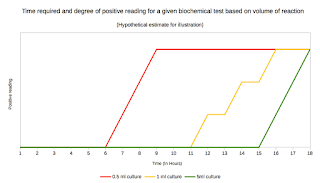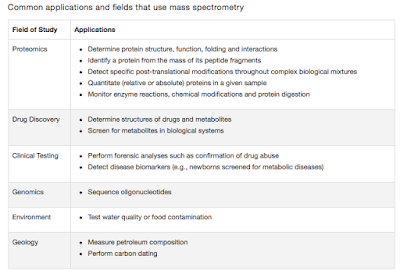Ebola 2014: Not yet over in 2015!!
Greetings
It has been a longtime since the Ebola outbreak 2014, has been a news. The outbreak has nearly died but hasn't dried up completely. In the course of first ever largest Ebola outbreak to be documented there is a lot to be learned from this outbreak. In continuation with previous updates on Ebola, a sum up of where we actually stand would be a post of interest.
The patient zero of Ebola hasn't been confirmed as of yet. However, the most likely candidate is an 18-month-old boy from Meliandou, Guinea as traced from retrospective studies. The boy had supposedly developed an illness characterized by fever, black stools, and vomiting on 26 December 2013 and died two days later. The exact source of his infection was never traced, but most likely contact with wild animals. By Jan 2014, many of the immediate contacts had picked up the infections. By the time, more people were effected and the infection came to be notice, the virus had already spread to four nearby villages. By the time, teams tested and an official statement was made by the WHO on 3rd March 49 cases and 29 deaths were officially reported.
 |
| Fig 1: Ebola outbreak, number of cases. |
As I mentioned already, the epidemic hasn't dried completely as there are still fresh cases being identified. However, its number has been far less. As of on 30th august 2015, WHO estimates that there has been a total of 28109 cases with 11305 confirmed deaths (case fatality ratio of about 40%). Fig 1 is an estimate by the WHO of cases by region. Many different countries that have been previously notified as effected has been declared to be free of EBV. A region is declared free of outbreak when there are no new reports or confirmed cases of EBV- infection. Following is a quote from WHO, on how it decides that a region can be declared as "Outbreak free".
The outbreak of Ebola Virus Disease (EVD) will be considered ended in any one of the above countries after 42 days have passed since the last confirmed case has tested negative twice for the virus on blood samples. After the 42-day period has elapsed, each country should maintain a system of heightened surveillance for a further 90 days, and ensure ongoing EVD surveillance and notification thereafter. The end of the Ebola outbreak in the West African sub-region will be declared when the 42-day period has elapsed in the last affected country.
 |
| Photo: Quarantine For Ebola. Source |
Liberia was under the 90 day surveillance, after being declared free on 9 March 2015. Later 6 new case had been identified after 29 June, 2015. Finally again on Sept 3, 2015 Liberia has been declared to be outbreak free. The trouble seems to be however not over for Sierra Leone. After having not seen fresh cases and just 5 days into the 42 day countdown time, it has identified some fresh new cases. This has been confirmed and steps have been taken for quarantine.
This is the first time that EBV has made it this big and there is an international focus. The first step in outbreak is to trace the lineage using molecular epidemiology. As the studies have indicated, there isn't much genetic change in EBV genome as many people predicted. Rather, it is mostly the same. However, it isn't clear as of yet on what makes this outbreak so vast in comparison with previous outbreaks. But it has been speculated that the longtime taken to recognize the epidemic and high risk behavior had significant contribution.
A couple of important things have emerged from this outbreak though. The outbreak lead to a remarkable renewal of interest in studying Ebola leading to rapid development of rapid diagnostics, drug and vaccine candidates. The fast track process has ensured record breaking time for vaccine development. There are several vaccine candidates (Link) for Ebola under testing. With several products under testing it is estimated that, if there is a possibility of next outbreak we are prepared to handle it.
There is an excellent summary of what this outbreak has taught us (Link). Under the discussion "The four biggest lessons from 2014", there is a very elaborate essay worth reading. In summary, this outbreak has taught us 4 aspects
1. There isn't sufficient health care knowledge and setup in some geographical locations, this needs to be worked upon.
2. The world needs a better constant surveillance system, which can alert us when there is a potential issue. It is highly worthy to invest in such a system, which will serve longtime
3. A single method of containment mayn't work. In large outbreaks, several strategies has to perform simultaneously. That means we need good diagnostics to detect and drugs to treat immediately. And for the rest we need vaccine.
4. Last but important point, community not just the health care workers need to participate in the control program.
On the other hand there is an interesting post by Keyser, on what we haven't learnt. I agree with the article that there was an high unrealistic level of expectation from international team to knock down the outbreak. Aspects such as ethics and guidelines has to be re-defined for emergency situation. But, considering the progress being made in terms of time, inventing and discoveries pushing up, I would contest that a lot was done.
It is my impression that international organizations have taken a good look at this and requirements are put in place against the possible next outbreak. However, the outbreak has not seen the last case as of yet. Till every case is wiped out, the outbreak is not over.
It is my impression that international organizations have taken a good look at this and requirements are put in place against the possible next outbreak. However, the outbreak has not seen the last case as of yet. Till every case is wiped out, the outbreak is not over.
Zinszer K, Morrison K, Anema A, Majumder MS, & Brownstein JS (2015). The velocity of Ebola spread in parts of west Africa. The Lancet. Infectious diseases, 15 (9), 1005-7 PMID: 26333328





Comments
Post a Comment